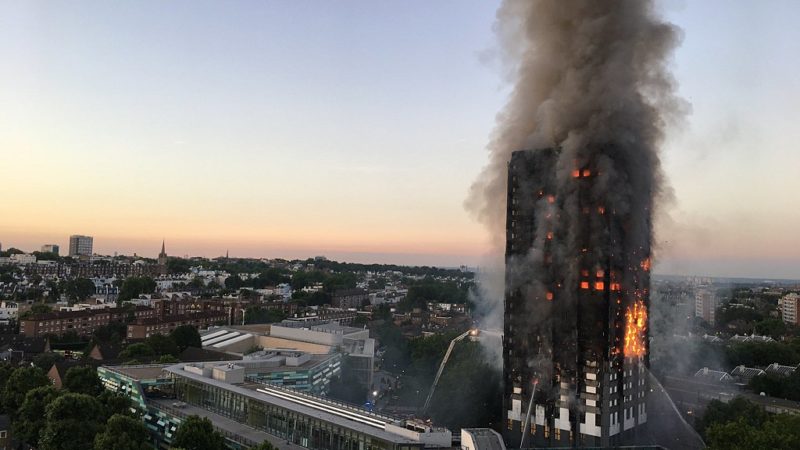Social tenants need more power over their landlords.

It’s more than two years since the Grenfell Tower fire exposed how little the concerns of social tenants resonate with government.
There is substantial evidence of how central government, and the arms-length management company responsible for Grenfell Tower and other social housing in Kensington and Chelsea, ignored the persistent pleas from tenants about the fire risk of the block’s cladding.
And, despite official inquiries into the tragedy, which left 72 dead and many more homeless and traumatised, dangerous cladding on hundreds of flatted blocks remains in place two years on.
Even though the government, in last year’s Social Housing Green Paper, indicated that a new ‘Tenant Voice’ might be created, to guard against future Grenfells, this has since been quietly dropped.
Grenfell has consequently become an emblem of both state neglect and of the yawning inequalities between social housing and other tenures.
The Thatcher government’s Right to Buy social housing, introduced in 1980 and ‘re-invigorated’ by David Cameron in 2012, is linked to chronic under-investment over forty years. It has resulted in social housing‘s decline from 1 in 3 of all homes in England to just 1 in 6.
Tory housing policies have effectively consigned social housing to a tenure of ‘last resort’ for those most in need. This ‘residualised’ status has then been deployed to attack the social housing sector and stigmatise tenants.
Austerity policies pursued since 2010 have intensified these developments. Changes to tax and welfare benefits, the Bedroom Tax, the introduction of Universal Credit, and cuts to social housing and local authority budgets on which social tenants disproportionately rely, have worsened precariousness in social housing and widened tenure inequalities.
The Human City Institute has analysed official surveys and conducted research with almost 7,000 social tenants. It found:
- The average home owner has more than 40 times the wealth of the average social tenant, with 6 in 10 social tenants in the bottom decile of the wealth spectrum.
- Three quarters of social tenants are ranked in the bottom two quintiles of the national income spectrum with almost half placed in the poorest fifth. The average home owner has more than double the income of the average social tenant.
- Almost 1 in 10 social homes are located in the 1% most multiply deprived of 33,000 neighbourhoods in England and just under 1 in 3 are in the 10% most deprived.
- Some 50% of social tenants live in ‘urban diversity’ compared with 16% of home owners and 22% of private renters. A further 37% are ‘financially stretched’.
- Two fifths of social tenants say their standard of living has deteriorated, 43% say it has flat-lined, and only 15% have seen any improvements.
- The cumulative changes to tax and welfare benefits have reduced the average income of most tenants by at least 4% between 2010 and 2020.
Such inequalities call for concerted government action.
A step change in the power dynamics between social tenants, social landlords and government would be a start, including direct control of their housing and neighbourhoods by tenants, through extension of mutual, co-operative and community-led models.
Government must really end austerity, which overly affects social tenants, by making welfare benefits more generous, confronting in-work poverty, and enabling ways for tenants to accumulate assets without recourse to the Right to Buy.
Kevin Gulliver – @kevingulliver – is a director of Birmingham-based research charity the Human City Institute, former Chair of the Centre for Community Research, and part of the SHOUT save social housing campaign, but writes in a personal capacity. His interests are social and economic policy, especially relating to housing, health, wellbeing, communities, deprivation and disadvantage, and inequalities.
To reach hundreds of thousands of new readers and to make the biggest impact we can in the next general election, we need to grow our donor base substantially.
That's why in 2024, we are seeking to generate 150 additional regular donors to support Left Foot Forward's work.
We still need another 124 people to donate to hit the target. You can help. Donate today.




5 Responses to “Grenfell showed government’s neglect of people living in social housing”
Tom Sacold
Grenfell Tower was built in 1972. Since then we have had nearly 20 years of various Labour Governments who did bugger all about social housing. In particular, Blair & Brown’s New Labour who did not return the houses sold off by Thatcher into the public sector.
All housing should be ‘social’ and provided by the State not private business.
Tom Sacold
Also, housing paid for by hardworking British taxpayers should not be provided to illegal immigrants who turn up to sponge off our Welfare State.
Patrick Newman
You do not have to look far for the exposure of near criminal negligence by Tory politicians. It is all in Inside Housing:- https://www.insidehousing.co.uk/insight/special-investigation–the-lost-lessons-of-lakanal-how-politicians-missed-the-chance-to-stop-grenfell-61834?utm_source=Ocean%20Media%20Group&utm_medium=email&utm_campaign=10636195_IH-DAILY-13-6-2019-GR&dm_i=1HH2,6BYXV,KLHCYI,P0UTJ,1
Patrick Newman
Tom, there is no way a council or government would provide housing for an illegal immigrant (unless it was at her majesty’s ‘pleasure’). Have you transferred your membership of UKIP to the Brexit Party yet?
Dave Roberts
Where do we find the survey of 7000 residents referred to above? I would like to read it.